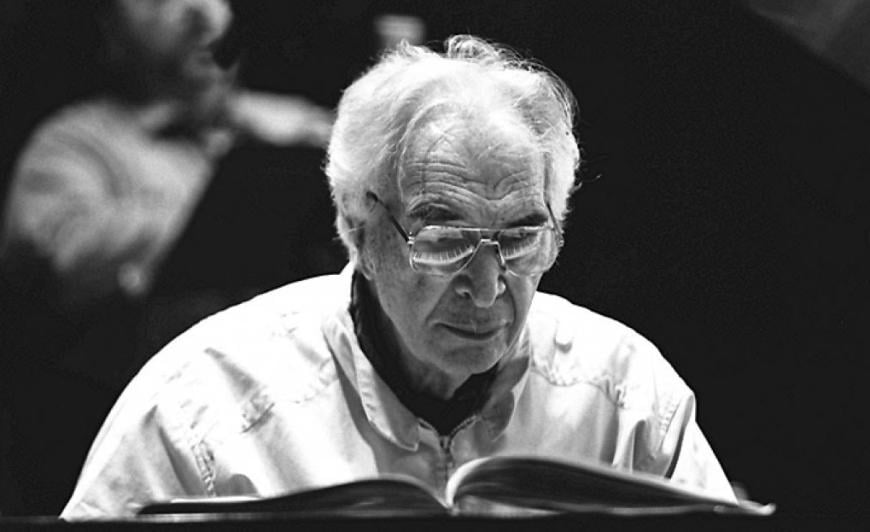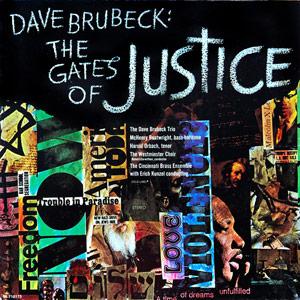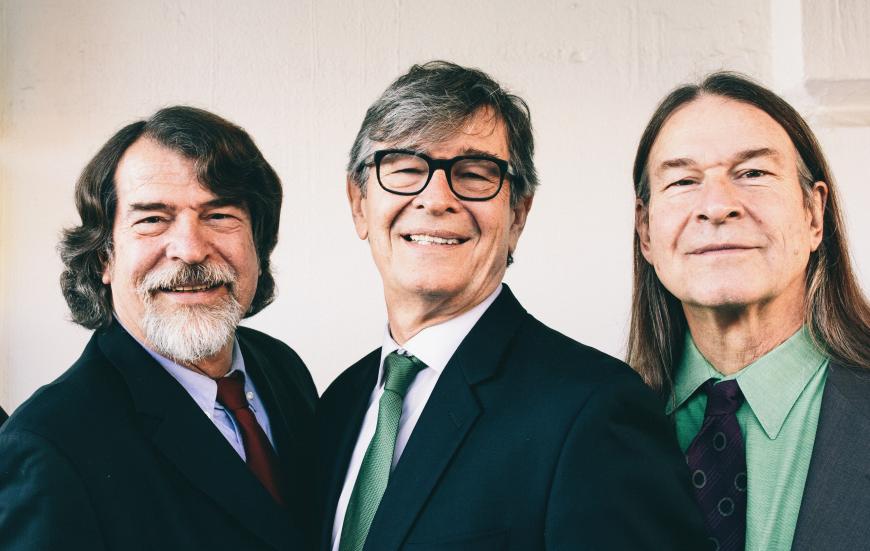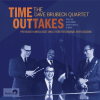
More than half a century since its creation, Dave Brubeck’s rarely performed 1969 cantata The Gates of Justice will be featured in two concerts later this month in Los Angeles. The cantata’s presentation is part of a three-day series of concerts and conversations around music and justice spearheaded by the Lowell Milken Center for Music of American Jewish Experience at the UCLA Herb Alpert School of Music.
The first concert will be held Feb. 26 at UCLA’s Royce Hall (and will be livestreamed as well), the second on Feb. 28 at Holman United Methodist Church. A day-long conference at UCLA on Feb. 27 will explore themes of social justice, Black-Jewish relations, and the role of music in furthering social change.

There are only two known recordings of The Gates of Justice. The first, originally released in 1970 on Decca, is out of print. The second was in 2001 when Brubeck led a session at Goucher College in Baltimore for the Milken Archive of Jewish Music.
“It is a testament to Brubeck’s skill as a composer that we can stage The Gates of Justice today and appreciate it for having stood the test of time musically,” said Milken Archive curator Jeff Janeczko in a statement.
Brubeck wrote The Gates of Justice after the 1968 assassination of civil rights leader Martin Luther King Jr. The Union of America Hebrew Congregations and the University of Cincinnati College-Conservatory of Music jointly commissioned the work.
In the aftermath of King’s death, relationships between the American Jewish and Black communities forged during the civil rights movement in the early 1960s had weakened and were starting to break down by 1969, according to the cantata’s original program notes: “It was a time of much anger, disaffection, fear, and distrust.”
The ensuing civil unrest between Black and Jewish people prompted Brubeck to create the cantata, a musical meditation on biblical justice, according to the late composer’s website.
Brubeck and his wife Iola had long been concerned with racial inequality, according to news accounts at the time. He refused to accept segregation and toured his integrated quartet regularly in the American South during the 1950s.
The jazz legend’s eldest son Darius said his father’s second-largest sacred cantata is relevant today in many ways. “Consider voter suppression, police violence mainly targeting Black [people], the treatment of migrants at our borders, rampant economic inequality throughout our society ... climate change — one can’t but see The Gates of Justice closing, perhaps, forever,” said Darius Brubeck in an email.

His father’s specific focus in 1969 was on civil rights, noted the younger Brubeck. “But his works show that he was as aware as anyone that all these issues were interrelated,” he said.
“The discourse around [civil] rights has broadened over the decades,” he continued. “Performing Gates now reaches beyond the original intention of the commission, yet the piece addresses contemporary concerns.”
The 50-minute work is scored for jazz trio, brass, chorus, tenor, and baritone. Iola wrote its lyrics, which incorporate biblical and Hebrew liturgical texts, African American spirituals, and words from King’s speeches.
Dave Brubeck, best known for his up-tempo works with unique time signatures, such as “Take Five” and “Blue Rondo à la Turk,” was less known for his sacred compositions and orchestral works.
Raised loosely as a Protestant on a Northern California ranch, Brubeck said that his World War II experiences as an infantryman strongly influenced his desire to compose sacred and classical pieces.
The Los Angeles concerts will be the first time three of the Brubeck’s four sons — Darius, Chris, and Dan — will perform the cantata together. They’ll be joined by a 70-member choir comprised of Black and Jewish singers from Los Angeles-area churches and synagogues, UCLA students, and the chorus Tonality. The soloists will be baritone Phillip Bullock and senior cantor of New York’s Park Avenue Synagogue Azi Schwartz.
The Brubeck brothers have played music together since childhood and have often performed with a saxophone player as a jazz quartet. “But I can’t recall a previous instance of appearing specifically as a trio, certainly not in this kind of setting,” said Darius, named after French composer Darius Milhaud, who had been one of his father’s professors at Mills College.
The program for both the evenings of Feb. 26 and Feb. 28 will begin with works by six contemporary composers that address social justice issues, including the world premieres of I Dream a World by Grammy-winner Arturo O’Farrill and Dear Freedom Rider by Diane White-Clayton.
“We hope that the [cantata’s] central message, drawn directly from the words of Martin Luther King — ‘If we do not live together as brothers, we will die together as fools’ — will resound far beyond the walls of the concert hall,” said Janeczko.
The 2001 recording of The Gates of Justice is the only one in print, according to Janeczko. “It remains one of our most important contributions to the world of music,” he said.


